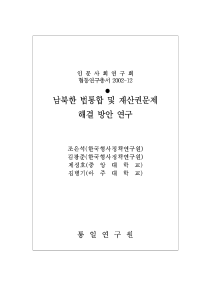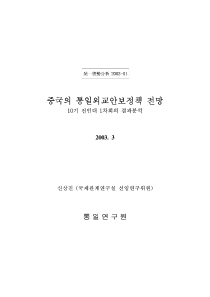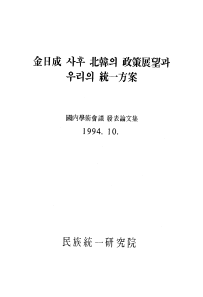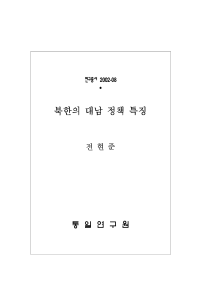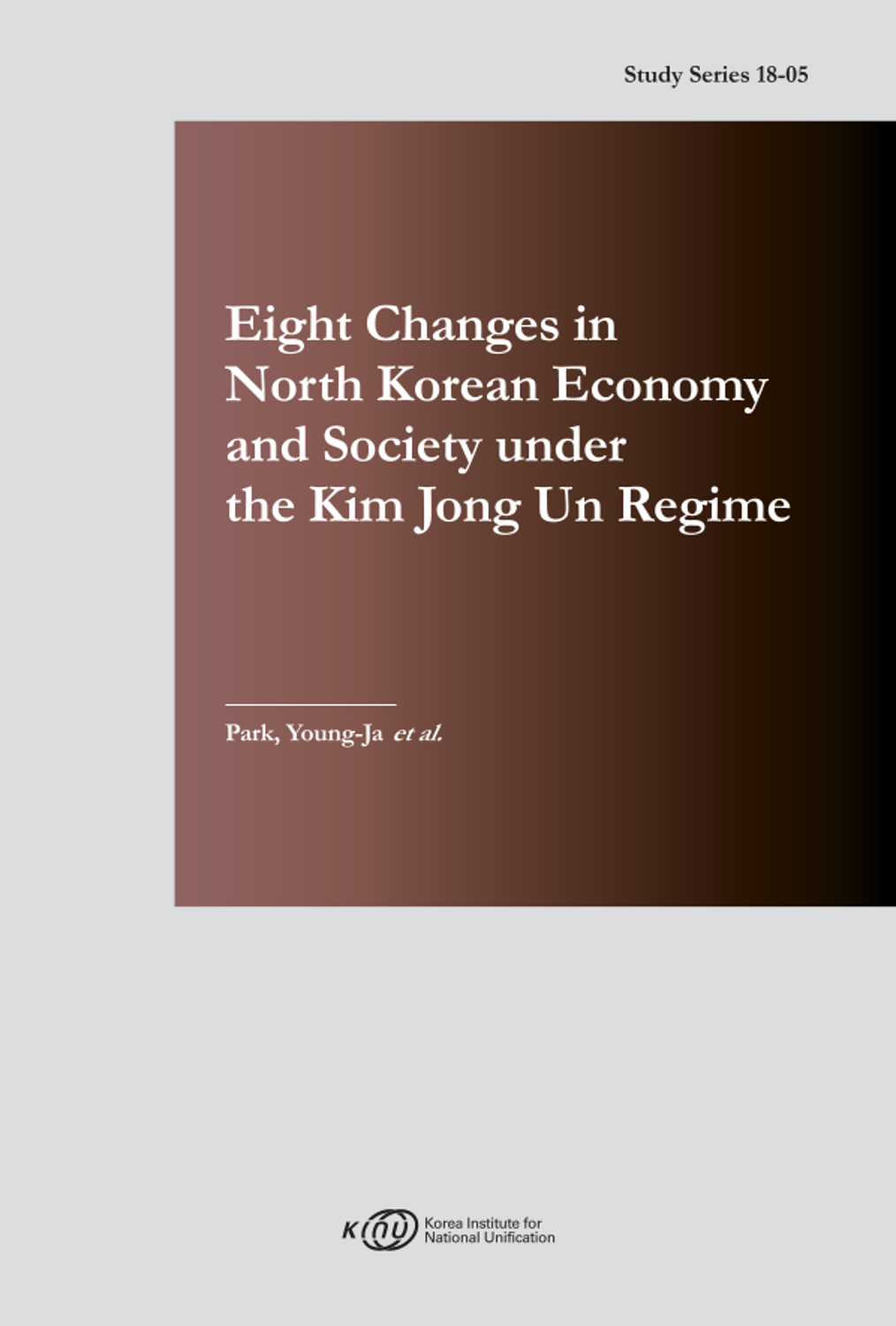
연구원발간물Study Series 18-05
Eight Changes in North Korean Economy and Society under the Kim Jong Un Regime
- 개인저자
- Park, Young-Ja; Joung, Eunlee, Jeong, Eun Mee, Cho, Jeong-ah, Jeon, Youngsun, Kang, HoJye Lee, Seogki, Hong, Jea Hwan
- 발행사항
- Seoul: Korea Institute for National Unification, 2018
- 형태사항
- 111p.; 23cm
- 총서사항
- Study Series
- ISBN
- 9788984799271
- 청구기호
- 000 SS18-05
소장정보
| 위치 | 등록번호 | 청구기호 / 출력 | 상태 | 반납예정일 |
|---|---|---|---|---|
이용 가능 (2) | ||||
| 1자료실 | G0016970 | 대출가능 | - | |
| 1자료실 | G0016971 | 대출가능 | - | |
이용 가능 (2)
- 등록번호
- G0016970
- 상태/반납예정일
- 대출가능
- -
- 위치/청구기호(출력)
- 1자료실
- 등록번호
- G0016971
- 상태/반납예정일
- 대출가능
- -
- 위치/청구기호(출력)
- 1자료실
책 소개
Today, two extreme views compete on North Korea’s economy and society. One view was originated during the hard times when severe food shortages caused mass starvation, factories halted operation because of electricity shortages and other issues, and homeless teenagers wandered marketplaces. According to this perspective, economic and social conditions in the Democratic People’s Republic of Korea (DPRK) still remain extremely backward, with famine prevailing. This view goes on to suggest that improvements are mostly reserved to the ruling class in large cities including Pyeongyang.
According to the relatively new viewpoint, the North Korean economy is currently on the path of rapid marketization, and the society is changing fairly quickly. This positive image of the DPRK is backed by foreign visitors’ testimonies on the economic development; new high-rise apartment buildings; over 4 million mobile phone subscribers; and North Korean products available in large-city department stores and other retail channels.
How can two such conflicting opinions coexist? One reason is a lack of information, coupled with imperfect delivery and interpretation of the data. It also does not help that North Korea’s social and economic changes are largely uneven...
목차
1. Introduction
2. Market and Industry: Industry in Recovery Backed by Market
3. Enterprises and Labor: Increasing Autonomy for Businesses
4. Finance and Currency: Development of Private Finance and Reform of Public Finance
5. Science, Technology, and IT: North Korea’s Development Strategy for the Future
6. Education: Education Reform and Widening Educational Gap
7. Class, Region, and Generations: Lifestyle Transformed by Social Changes
8. Gender and Reproduction: Shifting Social Concept on Gender and Sex
9. Culture and Trends: Path to Building Civilized State and Individual Desire Burgeoning
10. Conclusion: Policy Implications


